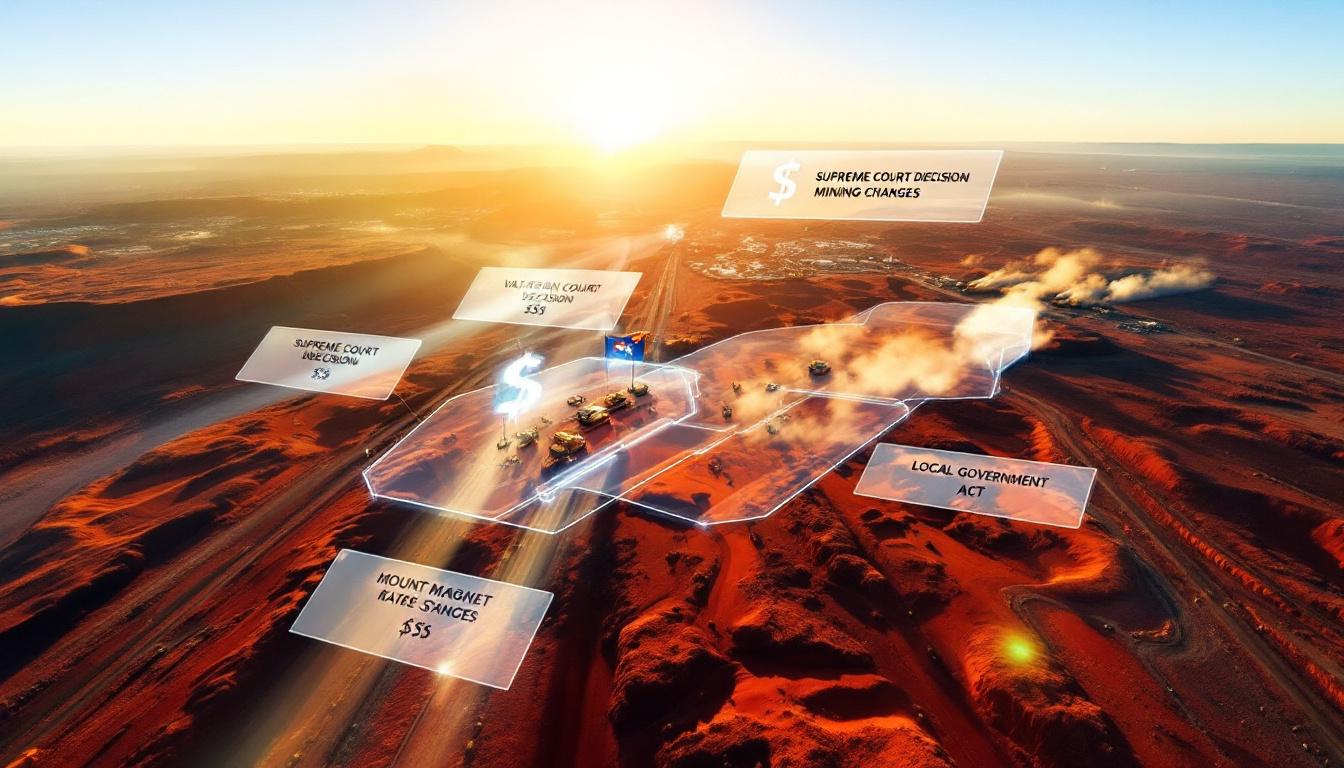What is Freeport Indonesia's Copper Export Permit Extension?
In January 2025, the Indonesian Government approved a six-month extension of the Freeport Indonesia copper export permit. This decision ensured the continuation of royalty payments while the Manyar smelter underwent urgent repairs. Furthermore, it maintained the critical export flows of copper concentrate during a delicate operational phase.
The permit extension offers a temporary solution amid challenges from the smelter fire in October 2024. Consequently, this measure has been vital in preventing significant disruptions. Moreover, it reflects Indonesia’s commitment to securing both immediate revenue and long-term industrial growth.
Why Did Freeport Indonesia Need an Export Permit Extension?
Freeport Indonesia required the export permit extension because its previous permit expired at the end of 2024. Without this permit, the company faced a rapid stockpile growth, reaching nearly 400,000 tonnes of unprocessed copper concentrate. Consequently, operations were reduced to about 40% capacity, posing significant logistical challenges.
Analyst Wijaya Santoso explained, "The stockpile situation created an untenable operational bottleneck." In addition, Freeport had to consider the risk of a production shutdown. Therefore, the extension prevents further operational cuts and safeguards the broader economic ecosystem in Papua.
Furthermore, this decision aligns with the government’s broader economic strategy. It prevents a sudden drop in foreign exchange earnings by ensuring copper concentrate continues to flow. Additionally, it supports job security for thousands involved in the mining sector.
How Does Indonesia's Mineral Processing Policy Impact Copper Exports?
Indonesia’s ambitious mineral beneficiation policies require that raw minerals remain in the country for processing. This policy, launched in 2014 and later strengthened, is central to the nation's resource nationalism strategy. In addition, the framework aims to capture higher value by moving from extraction to domestic processing.
For instance, investments in state-of-the-art facilities, such as the Manyar smelter, have been driven by these policies. Moreover, the process ensures that export permissions like the current permit extension are granted only as temporary measures. Consequently, the focus remains on building robust domestic processing capacity.
Additionally, stakeholders have compared this approach with global trends. In one analysis, experts noted [Indonesia’s mining law revision and its impact on mineral processing]. This comparison illustrates the challenges and opportunities posed to mining companies operating in Indonesia.
What Are the Key Details of Freeport Indonesia's Export Quota?
During this six-month period, Freeport Indonesia received an export quota of roughly 1.27 million tonnes. This quota was specifically allocated to mitigate the disruptions caused by the Manyar smelter repairs. Moreover, it allowed the mining giant to avoid steep production cuts that would otherwise hamper operations at the Grasberg mine.
Key points regarding this export quota include:
- A total allocation of approximately 1.27 million tonnes for copper concentrate exports.
- An administrative requirement to secure a formal export permit.
- Detailed documentation of shipping arrangements and quality verifications for the concentrate.
Furthermore, industry consultant Budi Santoso observed that the quota represents a significant compromise by the government. He stated, "The quota acknowledges that temporary exports are necessary to maintain operations." In addition, this approach ensures that the federal funds continue to flow amid repair challenges.
How Will the Manyar Smelter Impact Indonesia's Copper Processing Capacity?
The Manyar smelter in Gresik is a transformative project in Indonesia’s mining sector. Designed to process 2 million tonnes of copper concentrate per annum, it is set to become the world’s largest copper processing facility at full capacity. In addition, the facility ensures that domestic processing capabilities meet the country’s resource ambitions.
When combined with the existing PT Smelting facility, Freeport Indonesia will have a cumulative capacity of 3 mtpa. This development eliminates the need for copper concentrate exports under normal conditions. Moreover, it aligns with long-term goals to boost domestic mineral processing.
The smelter incorporates advanced flash smelting technology licensed from Finland’s Outotec. This technology offers superior metal recovery and energy efficiency. In a related discussion on global innovations, one might also explore [Chile’s copper smelting revolution: Codelco and Enami joint venture insights], which further highlights industry advancements.
What New Facilities Has Freeport Indonesia Developed in Indonesia?
In addition to the Manyar smelter, Freeport Indonesia has invested significantly in new facilities. For example, a $630 million, Rp10.37 trillion precious metals refinery has been launched at the Gresik complex. This development enables the processing of gold, silver, platinum, and palladium to international standards.
This sophisticated refinery produces gold and silver dore bars with 99.99% purity. Furthermore, it represents a crucial step towards capturing more value domestically. In addition, it reinforces Indonesia’s aim to become a leading processor rather than merely an exporter of raw materials.
Other supporting infrastructures include a dedicated port, enhanced power generation capacity, and state-of-the-art environmental management systems. Moreover, these investments underline the country’s vision for a self-reliant mining industry. Consequently, the integrated facilities boost overall operational efficiency.
How Does the Export Permit Extension Benefit Indonesia's Economy?
The six-month export permit extension plays a vital economic role for Indonesia. Firstly, it ensures the continuation of royalty payments during the repair period at the Manyar smelter. Secondly, these payments provide a stable revenue stream crucial for both federal and regional authorities.
Economic analyst Dr Surya Dharma explained, "Maintaining consistent royalty flows is critical for budget planning." Furthermore, the export permit supports the livelihoods of thousands of workers at the Grasberg mine. In addition, it prevents a domino effect that could cause significant socioeconomic disruption.
Another significant benefit is the stabilisation of the Indonesian rupiah. Copper exports contribute substantially to foreign exchange earnings. Therefore, by facilitating these exports during a challenging period, the government supports overall fiscal stability. For further perspectives on global markets, consider [Global commodities market insights].
An external report from a reputable source also adds credibility. For example, the Reuters article, indonesia extends export permit, illustrates similar regulatory dynamics in the mining industry.
What Challenges Do Mining Companies Face Under Indonesia's Processing Requirements?
Mining companies in Indonesia must navigate a challenging regulatory landscape. First, they face massive capital investment demands to build processing facilities. Moreover, Freeport’s investments in the Manyar smelter and refinery exceed $3 billion, highlighting the scale of financial commitment required.
The following challenges are crucial:
- High capital expenditure for new facilities.
- Limited technical expertise available locally.
- Regulatory uncertainty during facility repairs and permit renewals.
Additionally, companies need to foster robust relationships with multiple government agencies. In line with this, some experts have even drawn comparisons with [BHP’s strategic response to global trade challenges in mining]. Consequently, these challenges impact long-term operational efficiency and investment decisions within Indonesia.
Another pressing issue is the bureaucratic process related to temporary export permissions. This process requires extensive documentation and prompt resolutions, which can impact production schedules. Furthermore, the evolving regulatory framework demands that companies remain flexible and adapt strategies rapidly.
Frequently Asked Questions: Freeport Indonesia Copper Export Permit
What caused Freeport Indonesia to seek an export permit extension?
A fire at the Manyar smelter in October 2024 disrupted processing. Consequently, repairs necessitated a permit extension to allow temporary copper concentrate exports and prevent a production slowdown.
How much copper concentrate had accumulated due to export restrictions?
Approximately 400,000 tonnes stockpiled, forcing operations to only 40% capacity. This figure created an operational bottleneck that impacted working capital and strategic planning.
What is the timeline for the export permit extension?
The six-month extension reflects an urgent timeline to complete smelter repairs. In addition, authorities have indicated further extensions would require demonstrable progress on repair work and exceptional circumstances.
How does Indonesia benefit from domestic mineral processing?
Domestic processing creates higher-skilled jobs and facilitates vital technology transfers. Furthermore, it aids the formation of processing clusters and boosts state revenues through taxes and royalties on value-added products.
Conclusion: Balancing Growth and Regulatory Challenges
The Freeport Indonesia copper export permit extension embodies a delicate balance. On one hand, it preserves key economic streams by enabling continued exports. On the other, it underlines Indonesia’s long-term strategy to develop a robust domestic processing infrastructure.
Furthermore, this measure demonstrates the government's pragmatic approach to balancing economic stability with industrial policy. In addition, it highlights the ongoing global trend of resource nationalism and its global implications.
In summary, although temporary, the export permit extension is pivotal for maintaining operational continuity. Consequently, the careful orchestration of policies and investments ensures that Indonesia remains competitive while fostering domestic value creation. Every step taken reinforces the nation’s commitment to turning challenges into opportunities.
Want to discover the next major ASX mineral opportunity?
Discovery Alert's proprietary Discovery IQ model delivers real-time notifications on significant ASX mineral discoveries, transforming complex data into actionable insights for traders and investors. Explore how historic discoveries have generated substantial returns by visiting Discovery Alert's dedicated discoveries page.




